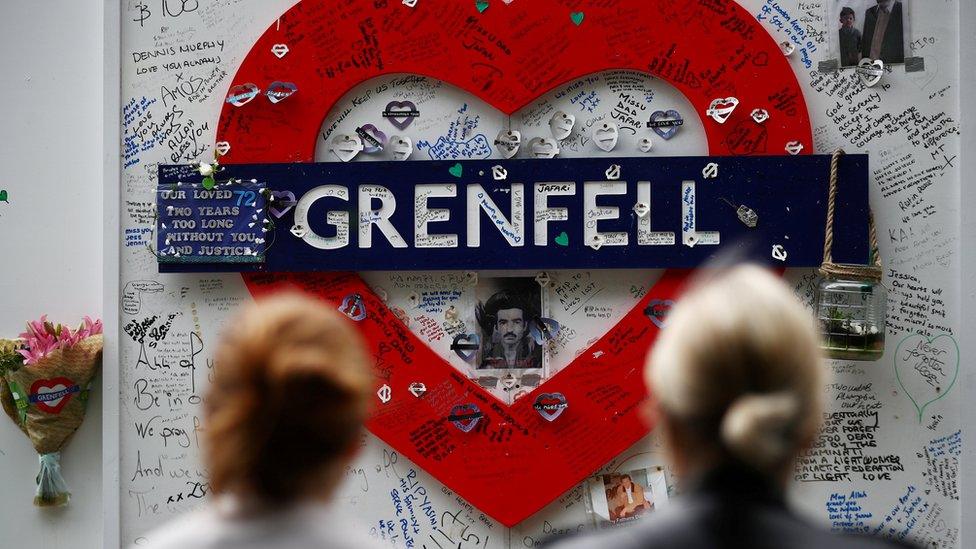Grenfell Tower inquiry: Main firm 'overlooked safety document'
- Published
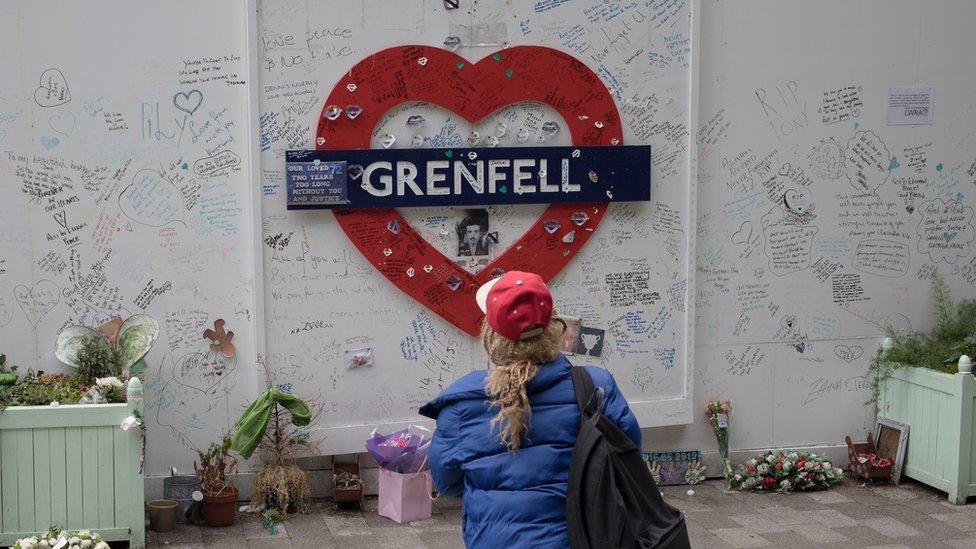
The main contractor on the Grenfell Tower refurbishment overlooked a key fire safety document, the inquiry into the blaze has heard.
It included requirements regarding the fire hazards of certain cladding materials and had to be kept on-site.
But Simon Lawrence, contracts manager at building firm Rydon, said the "sheer amount of information" involved in the project led to it being missed.
The inquiry's first phase found that cladding fuelled the June 2017 fire.
Hearings in the second phase of the inquiry returned last week after a four-month break due to coronavirus.
This second phase is examining the refurbishment of the 24-storey residential block in North Kensington, west London, in which 72 people died.
The inquiry heard on Thursday that a copy of the Standard for Systemised Building Envelopes, compiled by the Centre for Window and Cladding Technology, had to be kept on-site under National Building Specifications.
The document states that "the building envelope shall not be composed of materials which readily support combustion, add significantly to the fire load, and/or give off toxic fumes".
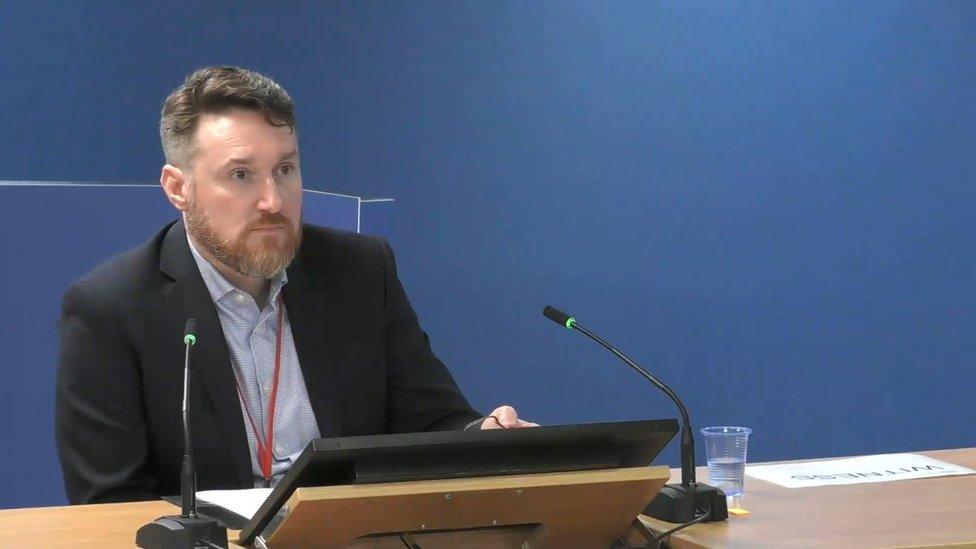
Simon Lawrence, contracts manager at Rydon, said the firm was "reliant on others"
Asked about the guidance by inquiry lawyer Richard Millett QC, Mr Lawrence said: "We wouldn't have had a copy on site.
"It obviously wasn't picked up in all the documents we had to go through... it obviously wasn't noticed."
Mr Lawrence said the "sheer amount of information" led to it being missed, but said he was familiar with the "principle" of the guidance but not the "technical part".
Asked about what steps Rydon took to supervise the overall project and ensure the works were being completed with safe materials, he said: "I think it would be using a competent design team, competent specialist contractors, backed up by building control and all the layers within."
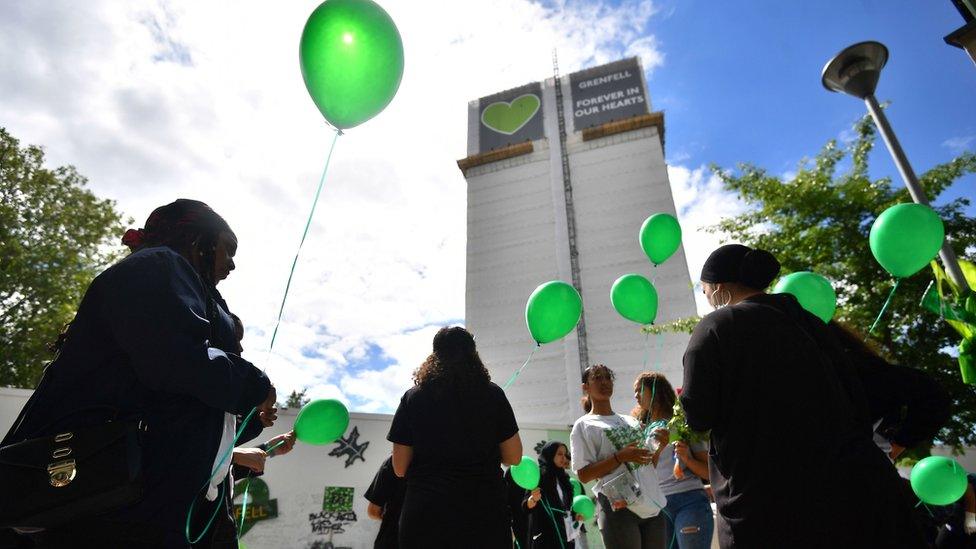
People released balloons at the base of Grenfell Tower on the third anniversary of the fire
He said it was up to Rydon's sub-contracted design team including architects Studio E and external wall firm Harley Facades to check that any materials being used on the tower block refurbishment were safe and complied with the regulations.
Mr Lawrence, who was involved in the project between June 2014 and October 2015, agreed that this boiled down to Rydon being "reliant on others".
He said in his witness statement that "at no point" did he "have any reason to believe" materials were to be used which did not meet legal requirements.
Thursday's appearance before the inquiry was the first time that Rydon, the company at the centre of the refurbishment, had given evidence.
- Published30 May 2018
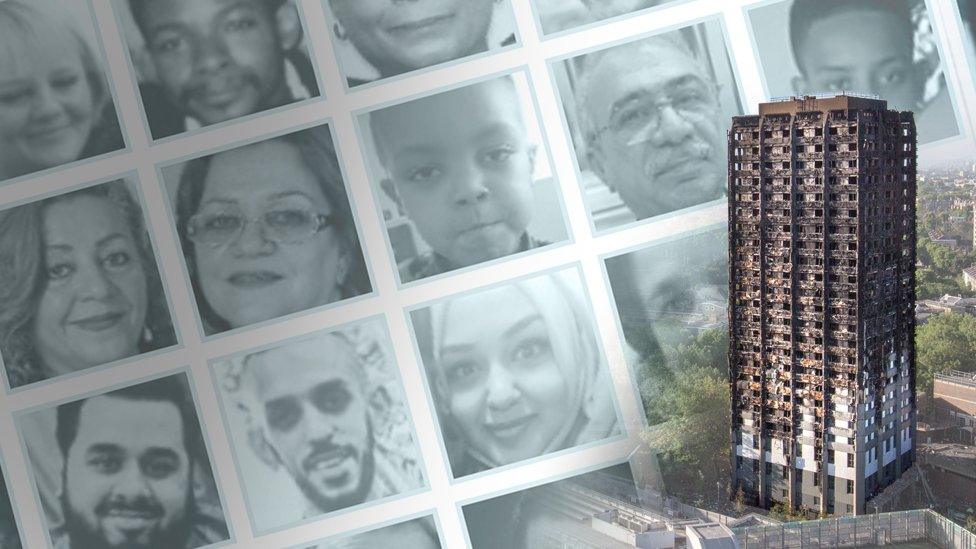
- Published8 July 2020
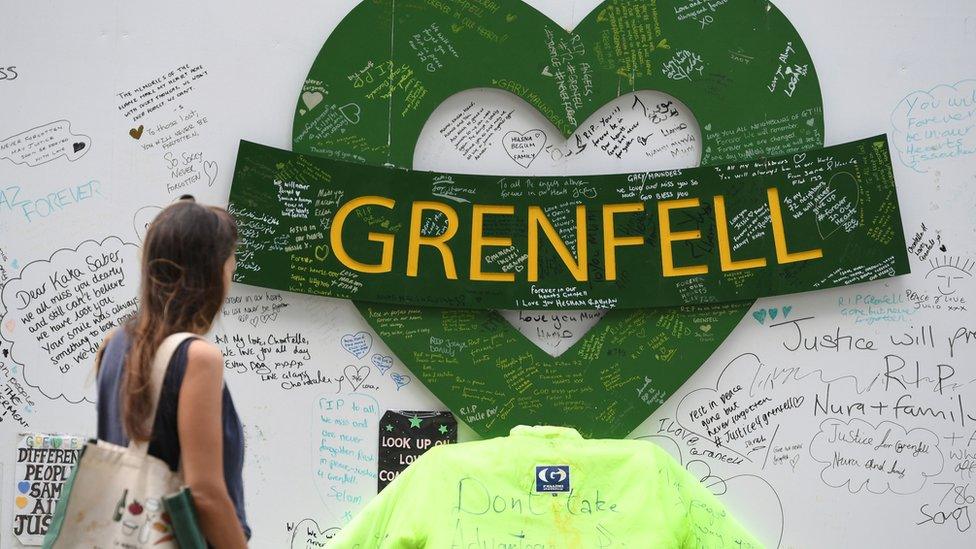
- Published6 July 2020
